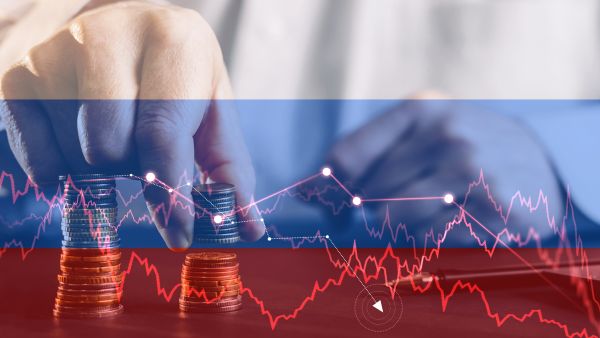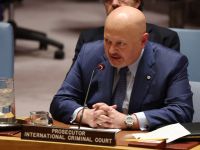ALBAWABA — Russia’s economy contracted by 2.1 percent last year, the government's statistics agency Rosstat said Monday, compared with a 5.6 percent year-on-year rise in 2021.
The country’s economy is being hurt by the fallout from its decision to invade Ukraine on February 24 but it has for now absorbed Western sanctions better than the 2.9 percent contraction forecast by the economic development ministry in September and the around 3 percent drop in gross domestic product expected by its central bank.
Before the conflict in Ukraine began, the Russian government had expected gross domestic product growth of 3 percent in 2022.
"The 2.1 percent contraction in Russian GDP in 2022 was smaller than expected and is consistent with an expansion in the fourth quarter, providing further evidence to suggest that the economy stabilized after the initial hit from sanctions in the second quarter," Liam Peach at Capital Economics told Agence France-Presse.
"Even so, momentum in Russia's economy remains weak and, with headwinds to activity building, it's likely to take until late this year before Russia embarks on a sustained recovery," Peach added.
The Russian government expects an economic decline of 0.8 percent while the International Monetary Fund said at the end of January it expects Russia will muster slightly positive growth in 2023, forecasting growth of 0.3 percent on the back of resilient commodity exports.
Russia’s economy is expected the to return to growth in the middle of this year, seeing GDP this year in the range of -1.0 to +1.0 percent, according to Elvira Nabiullina, governor of the Bank of Russia.
In January, annual inflation was stable at around 12 percent, having shot up to 17.8 percent in April as Western sanctions began to bite.
At the beginning of February, Russia's central bank said it expected annual inflation to steadily fall within a 5 and 7 percent range his year and to further descend to 4 percent in 2024.
On February 10, Nabiullina said rates are likely to rise this year, after the monetary policy committee left the policy rate unchanged at 7.5 percent, adding that inflationary pressures meant “the key rate is more likely to be raised rather than cut this year”.
“It’s a good result,” Dmitry Polevoy, economist at Locko Bank, told Bloomberg “But this is all in the past. What matters is the future and here there are still few reasons for a recovery. In the base case for 2023, we still see a small contraction of 1-2 percent.”
Bloomberg estimates that Russia’s economy will lose $190 billion in gross domestic product by 2026 relative to its pre-war trajectory.







